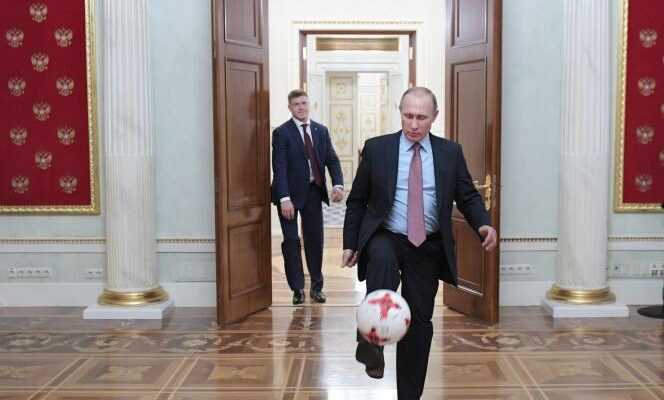Prom all the “domino effects” caused by the Ukrainian conflict, the wave of sanctions hitting Russian sport may seem secondary, but its symbolic significance should not be underestimated. It undermines the strategy of geopolitics through Russia’s sport as much as it exposes the past complacency of major sports organizations.
With its recommendations of February 28, the International Olympic Committee (IOC) brought down the first domino by endorsing the sanctions that the federations could take thereafter. Since then, exclusions and cancellations have been cascading, like UEFA and FIFA, which have excluded the national team and Russian football clubs from all competitions.
Over the past twenty years, the ties of FIFA Presidents Sepp Blatter (1998-2015) and Gianni Infantino (since 2015) with Vladimir Putin have nevertheless revealed a warm intimacy, one of the results of which has been the attribution to Russia, in 2010, of the 2018 World Cup.
“A lower level of democracy is sometimes preferable”
“FIFA will always be behind Russia. Football does a lot for peace. This is particularly important in the current geopolitical situation”, declared in July 2015 Sepp Blatter, little affected by the annexation of Crimea, the previous year. A few days later, Putin estimated that “people like Mr. Blatter or the great leaders of international sports federations or Olympic committees” deserved the Nobel Prize.
Gianni Infantino had made himself the zealous promoter of the host of the 2018 World Cup which he had qualified, two days before the final, from “best World Cup ever”. “Russia and the Russian people left an exceptionally positive impression on everyone after the tournament”he congratulated himself again in June 2019 … a few weeks after being decorated by Vladimir Putin.
In the spring of 2013, when a social movement was in full swing in Brazil and turned against hosting the World Cup the following year, FIFA Secretary General Jérôme Valcke confessed: “A lower level of democracy is sometimes preferable to organize a World Cup. When we have a strong man at the head of a state who can decide, as Putin may be able to do in 2018, it’s easier for us. »
The gigantism and the cost of major events such as the Olympic Games and the World Cup being increasingly denounced within democracies, the emergence of new “sporting powers” – Qatar, Russia, China, United Arab Emirates, Saudi Arabia , etc – has been a boon to sporting powers. The latter have remained indifferent to the nature of these regimes, and have even given up on promises of human rights progress in these countries.
You have 44.5% of this article left to read. The following is for subscribers only.
